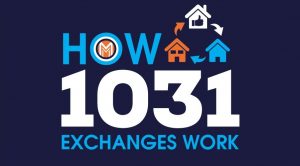How important is it that you shop for the lowest interest rate? Sure, rate is important, but it means nothing if you work with a lender that can’t deliver on your loan, meet contracted closing dates or leave you feeling abandoned from lack of communication. Service is important, so you need to align yourself with the right lender that not only has competitive rates, but has good communication and a process that gives your loan the attention it deserves.
If you want to avoid homebuyer’s remorse, it will require a bit more than just choosing the right home in the right neighborhood. According to a recent survey by J.D. Power, 27% of new homeowners ultimately came to regret their choice of lender this past year. The major reasons for their dissatisfaction include: lack of proper communication, expectations not being met, and poor overall customer experience. Another reason many are unhappy with their lenders is due to pressure from those lenders to choose a particular product or loan. The best way to not feel pressured by a lender is to be prepared and to have certain criteria with several questions ready to ask them. You can eliminate some of the hassle of house-hunting by carefully filtering through potential lenders.
Here are 10 important questions to ask potential lenders before committing to one:
1. Are you a broker or a banker?
This is by far the least asked question I get. So what’s the difference? A mortgage broker is the middle man between you and the actual lender that services your loan. They give you advice and take the loan application but pass everything off to the lender for review. They don’t underwrite your loan in-house and they don’t fund your loan either. You can expect longer turn times as they have little control over the process. Will you meet your financing contingency date? Will you meet your contracted closing date? Will the loan funds make it to closing? Your guess is as good as mine.
A mortgage banker, similar to the broker, may not actually be the one that services your loan after you close. However, bankers have full control over the process. They can process, underwrite, prepare your closing documents and even fund your loan with their money. They tend to be more flexible as it pertains to exceptions and rush requests. You can expect a much smoother process, better service and shorter turn times than a broker.
2. What mortgage programs do you offer?
You don’t necessarily need to know about every single loan type possible but it’s important to know if they offer loans unique to your situation. A seasoned loan originator can help guide you towards the right product, but if you have a 580 FICO score, it’s good to ask if they have loan programs for people with lower credit scores. Are you looking to get a jumbo mortgage (loan greater than $453,100) and only have 5% down payment? These programs exist, but not all lenders offer these products. In most cases, choosing the best loan for your specific financial situation requires working with a lender who offers a wide array of loans. Remember, this is one of the largest investments you’ll make in a lifetime, so make sure you work with a lender that caters to your needs and doesn’t try to steer you into a program that simply doesn’t make sense for you.
3. What are the qualifications for the loan I’m seeking?
Here’s an example of a deal that I was recently asked to jump in and try to salvage. A military veteran was purchasing their first home using VA financing. This is probably one of the best products available, but depending on the property type, there could be roadblocks along the way. The original loan originator didn’t ask the right questions and drew up a pre-approval letter for a VA loan. The buyer contracted on a condo only to find out the condo project wasn’t already VA approved – A mandatory process for condos on government sponsored loans. Several weeks went by without progress, so I was asked to help. The seller was going to cancel the contract unless the buyer switched from a VA loan to conventional. We got the deal done, but all the stress, pressure and frustration amongst all parties could have been eliminated if the loan officer managed expectations day one. This first-time homebuyer isn’t expected to know these guidelines, but if the buyer understood the condo project had to already have been VA approved, then she would have either chose alternative financing or contracted a closing date much further out to give the lender time to get the condo project approved.
The point is, have a discussion with the loan officer about qualifying. Not just the credit profile of the buyer, but property type, location and any potential issues that could arise. Lending is tricky with over 1,400 pages of guidelines. All parties need to be on the same page, and you need to work with a lender that understands the qualifications for your particular loan.
4. What programs do you offer to first-time homebuyers?
Many first time homebuyers think there are specific programs out there JUST for them. They are right, but often times first-time homebuyers don’t actually need these programs. Some programs cater to those with little down payment, lower income and in some cases buyers can receive down payment assistance. With every Pro, there’s a Con. If you’re receiving a loan with low down payment, you can expect the PMI cost to be much higher. If you are getting a grant for down payment assistance, you can expect the interest rates to be much higher. First-time homebuyer or not, these programs may or may not be the right fit for you. However, it’s good to have a conversation about the products you are eligible for.
5. Can you give me an estimate of the rates and fees I can expect to pay?
While an initial estimate doesn’t guarantee your final, out-of-pocket expense, it can be a solid starting point for evaluating lenders. Rates fluctuate, so try comparing lenders on the same day to get the most accurate mortgage rate comparisons. Again, these rates won’t always be the same or 100% accurate, but they will give you an idea right off the bat of lenders to potentially pursue and lenders to avoid.
6. Can you quickly provide an in-depth pre-approval letter to my real estate agent?
If you are house-hunting in a hot real estate market, time is of the essence. Make sure the lender can quickly provide an in-depth preapproval letter to your real estate agent. You want a preapproval letter that makes the seller confident you qualify for the home and ideally, you want it to be delivered before competing offers arrive, giving you a better chance at the deal you want.
Most realtors actually want this letter before taking you out to show properties. You should make your loan originator your first point of contact in the home buying process.
7. What is your rate lock policy – Do you monitor mortgage backed securities?
Since a small change in rates can cost thousands in the long run, check to see the lenders mortgage rate lock options. Be sure to ask about the associated fees, including how much it costs to extend the lock should it expire before closing. You are going to need to lock your loan at some point, but typically the shorter the rate lock period, i.e. a 30 day lock versus a 60 day lock, has a better rate. If your closing date is in 35 days, is it best to do a 45 day lock or is it better to wait 5 days and do a 30 day lock? A mortgage professional who monitors mortgage backed securities can look at trends and understand if any upcoming financial news could impact the direction of interest rates. While nobody has a crystal ball, it’s best to work with a lender that has some understanding of mortgage bonds and recent trends to help provide you with an educated decision on the best time to lock.
8. Do you handle mortgage loan underwriting in-house?
This is an important question to ask. If the loan underwriting is completed in-house, loans can be processed quicker and questions answered more efficiently, and that means fewer potential complications or delays that could push back a closing date. Underwriting that takes place externally (brokered) can get very unorganized and become a terribly slow and painful process. These kinds of situations can sometimes cause a sale to fall apart due to lack of patience.
9. What is the estimated time for processing my home loan?
When you are coordinating the end of a current lease or timing a home sale with a new home purchase, knowing the estimated time it will take to process your loan is key. Of course, it’s always a good idea to build in a small buffer if you can, and not just because loan preparation can take longer than expected. Surprises sometimes pop up during the final walk-through before the home sells so it is a good idea to have a rough idea of how long it will take to process the loan before finalizing.
10. Can I expect communication in a straightforward and timely manner?
If your communication thus far hasn’t been efficient and helpful, that could be a bad sign of things to come. Find out if you’ll have a single contact who you can count on or just a general customer service line. Establishing a good working relationship with one person is usually the better move versus trying to deal with and explain things more than once to a handful of different people.
In Summary
Make sure to do your research and be prepared before entering these conversations. This is your money, your investment, and your life that is being affected, so do not be timid to speak up and help yourself. You will be thankful in the future for spending the extra time and effort to get yourself the better long-term deal.
Written By: Chris Ulrich – United Home Loans
NMLS# 215735









